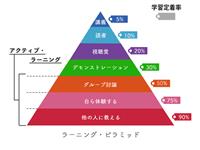Intervention for Plenary Session 1: Challenges Ahead – Moving from Old to New for Stakeholders
Recent Initiatives in Human Capacity Building in New Zealand(节选)
Hon Lianne Dalziel
Head of Delegation for New Zealand
The New Zealand Government, in setting out its vision for New Zealand has established a commitment to economic and social transformation. Human capacity building is a critical factor to both.
It is clear to us that to be successful in building human capacity, not only is cross sectoral collaboration required but also the Government must provide strong leadership and clear direction. Success requires getting a lot of things right not only with respect to core educational strategies but also in relation to capacity building in communities and in the links between education and enterprise.
For this reason in our work we are drawing on the valuable perspectives of business, education and training providers and unions, along with lesson from international experience. This forum provides another such opportunity.
New Zealand has over the past 18 months instigated a number of reviews and developed a number of initiatives, specifically aimed at human capacity building, and I will touch briefly on these.
They are the development of the New Zealand Adult literacy strategy, the reviews of industry training, adult education and community learning and tertiary education, and the introduction of a modern apprenticeship programme. I believe that these are all areas where economies can share strategies to mutual benefit.
The New Zealand Adult Literacy Strategy was launched last week. The driver for the strategy was a 1996 International Adult Literacy Survey that identified that 20% of New Zealand’s adult population has very poor literacy skills.
Not surprisingly almost half of all unemployed New Zealanders were at the very lowest level of literacy. And among the employed, the lower the skills required, the higher the percentage of those low levels of literacy.
The New Zealand literacy strategy seeks to address these issues by developing capability among adult literacy providers, improving quality systems and increasing opportunities for adult literacy learning. Two particular areas of focus will be:
Work-based literacy programmes, to ensure that those currently employed are able to upskill ahead of technological advances; and
Family literacy programmes, recognizing the strong links between parental literacy and their children’s literacy.
We have also commenced a review of adult education and community learning to ensure that staircasing opportunities are available at every level.
The next area of work is the review of industry training in New Zealand called “Skills for a Knowledge Economy”.
The New Zealand Government recognizes that an effective industry training system is critical to New Zealand’s economic prosperity. Having a highly skilled work force, capable of continuous learning and able to respond to changing skill needs is the essential foundation for out economic growth and social well-being. Today’s environment is characterized by rapid technological change and the need to compete in global trade and labour markets.
There is considerable flexibility in the current industry training system. It is based on transferable and modular qualifications and partnerships between business, training providers and government. The past decade has seen a rapid increase in both the number of people and the range of industries involved in industry training.
四川外语学院:英语口译:Recent Initiatives in Human Capacity Building in New Zealand
| 课件名称: | 四川外语学院:英语口译 |
| 课件分类: | 外语 |
| 课件类型: | 教学课件 |
| 文件大小: | 1.57MB |
| 下载次数: | 13 |
| 评论次数: | 8 |
| 用户评分: | 7.4 |
- 1. 四川外语学院:英语口译:AAPP小组讨论报告
- 2. 四川外语学院:英语口译:Developing a Comprehensive VET System
- 3. 四川外语学院:英语口译:Improvement of Soft Environment
- 4. 四川外语学院:英语口译:On City Planning
- 5. 四川外语学院:英语口译:Recent Initiatives in Human Capacity Building in New Zealand
- 6. 四川外语学院:英语口译:中国欧盟国有企业公司治理国际研讨会开幕式主持词
- 7. 四川外语学院:英语口译:促进清洁产品的重要性
- 8. 四川外语学院:英语口译:关于社区建设-英语
- 9. 四川外语学院:英语口译:利宝中国地区总经理讲话-英语
- 10. 四川外语学院:英语口译:在美国教育代表团来渝访问报告会上的发言
- 11. 四川外语学院:英语口译:建立健全国有大中型企业法人治理结构
- 12. 四川外语学院:英语口译:星顺公司开业致辞
- 13. 四川外语学院:英语口译:江泽民主席在亚欧长会议上的致辞
- 14. 四川外语学院:英语口译:王鸿举市长在中澳职教国际论坛上祝辞



